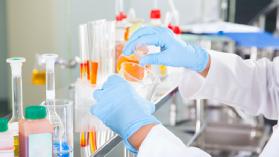Buy Technologist in Microbiology M (ASCP) License Online

The Technologist in Microbiology (M(ASCP)) is a national certification from the American Society for Clinical Pathology (ASCP) that signifies advanced expertise in identifying bacteria, viruses, and other microorganisms to aid in the diagnosis and treatment of infectious diseases. To achieve this credential, candidates must meet specific educational and experience requirements and pass a comprehensive written examination covering areas like bacteriology, virology, and molecular microbiology.
Role and Responsibilities
- Identifying Microorganisms:Conducts tests to identify bacteria and other pathogens in patient samples, such as blood and tissue.
- Specimen Processing:Manages the proper collection, labeling, and processing of specimens to ensure accuracy and prevent contamination.
- Laboratory Operations:Utilizes manual, automated, and molecular techniques for pathogen identification and processes specimens using sterile techniques.
- Quality Assurance:Performs quality control and preventive maintenance on laboratory equipment.
- Leadership:Acts as a leader and educator within their specialty area.
Requirements for Certification
To be eligible, candidates typically need:
- Education:At least a four-year baccalaureate degree, a post-baccalaureate degree in medical laboratory science, or a master’s degree in a related field from an accredited institution.
- Experience:One year of full-time experience in a clinical, research, or industrial microbiology laboratory within the last five years.
- Certification/Completion:Valid Medical Laboratory Scientist (MLS(ASCP)) or Medical Technologist (MT(ASCP)) certification or completion of a NAACLS-accredited medical laboratory scientist program.
Certification Process
- Apply: Submit an application to the ASCP Board of Certification (BOC).
- Prepare: Study for the comprehensive M(ASCP) certification exam, which assesses knowledge in various areas of microbiology.
- Take Exam: Pass the certification exam to earn the credential.
Key Skills
- Microscopic examination of specimens
- Culturing and media selection
- Manual, automated, and molecular identification methods
- Antibiotic susceptibility testing
- Knowledge of laboratory safety and troubleshooting
